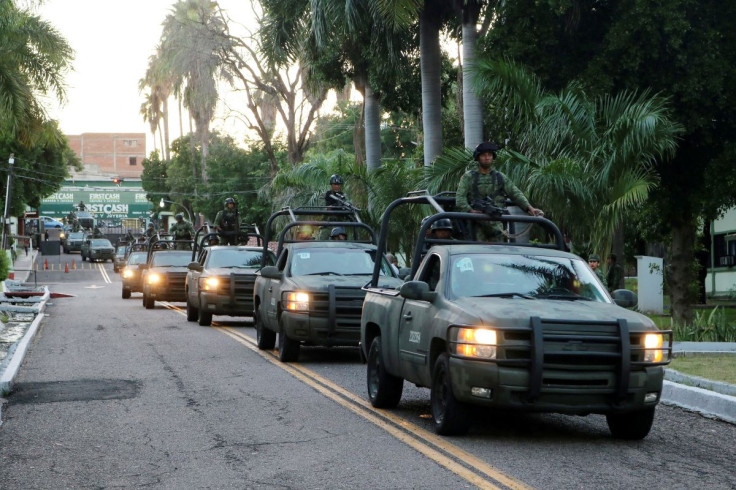
Four people have been reported dead as a result of ongoing turf wars between cartels in northern Mexico, leading to local police to beef up forces in the area.
"We are reinforcing security to guarantee the safety of the people of Ojinaga, Coyame and Manuel Benavides," said Chihuahua state police chief Luis Aguirre. Officers also found abandoned vehicles and a burned car, as well as rifles, smoke grenades and ammo.
According to Border Report, the area has seen several murders over the year amid a fight between the cartels of Sinaloa and La Linea as both vie for migrant smuggling routes. The Mexican army has also sent troops to the area to help state officers.
Aguirre said police is also investigating a series of murders at a quinceañera party in Juarez over the weekend, when armed men arrived to a home and opened fire on nine teenagers and young adults. Three minors and two adults were killed, and four others were wounded. He did not specify a motive for the killings, only saying "we have made significant progress in the investigation."
Northern Mexico has seen increased violence over the past weeks, especially after the arrest of Sinaloa Cartel co-founder Ismael "El Mayo" Zambada in late July. Ongoing clashes between rival armed groups in the rural areas of the Mexican state of Sinaloa, specifically around the areas of San José del Llano, Tamiapa, and Los Sitios, led to the suspension of classes, while absenteeism in the area surged to 70%.
The areas are located in the mountainous region of Badiraguato, known for being the birthplace of infamous drug lord Joaquín "El Chapo" Guzmán, founder of the Sinaloa Cartel. The violence has forced the closure of schools and has created a state of fear throughout the region.
The area's remote location and rugged terrain have long made it a haven for drug cartels, and its notoriety as the birthplace of "El Chapo" only adds to the tension. The sight of military helicopters hovering overhead and armed vehicles patrolling the roads has done little to ease the anxiety of residents.
Tensions are also running high after the capture earlier this month of Carlos Munsivais Treviño, a leader of the Cartel del Noreste and known as "El Bola." He was taken by Mexican forces in Nuevo Laredo, Tamaulipas, and taken to the capital to face charges.
Texas Border Patrol agents have been placed on high alert as a result, with a memo from the Laredo Sector Intelligence Unit warning that this could lead to increased "cross-border violence in the form of retaliatory attacks."
According to local media, he was in charge of organizing kidnappings, extortion and drug and migrant trafficking, as well as attacks against the Mexican military. The cartel is based in Nuevo Laredo, close to the Texas border, but also operates throughout Mexico, the U.S., Honduras, Guatemala and Colombia.
© 2025 Latin Times. All rights reserved. Do not reproduce without permission.






